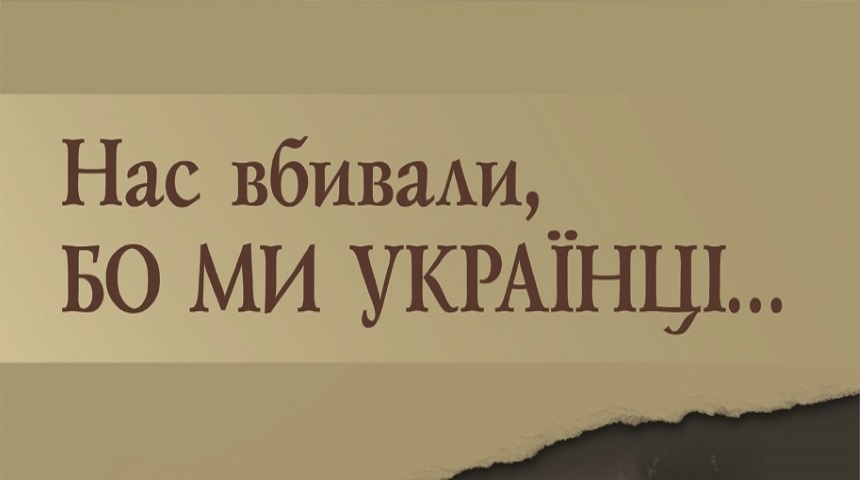«We Were Killed Because We Are Ukrainians»
More than 70 years have passed since the proclamation of the Convention on the Prevention and Punishment of the Crime of Genocide. However, mass killings and genocides are raging in various parts of the world today. For Ukraine, the issue of preventing the crime of genocide is particularly important. In 1932–1933, the Bolshevik regime committed a genocide against the Ukrainian nation called the Holodomor. For more than 60 years, Ukrainians have been forbidden to even remember their loved ones killed during the Holodomor. That is why so little is known in the world about the brutal and large-scale crime, which killed more than 7 million people. Informing the world community about the Holodomor is relevant, because even today the governments of certain countries use the famine as an instrument of murder.
Ukraine appeals to the world community to recognize the Holodomor as an act of genocide of the Ukrainian nation and condemn Stalin’s policies and the communist Soviet regime. The world’s delayed condemnation of the Soviet regime and its crimes led to new ones.
The Russian Federation, which is the successor to the USSR and officially denies the genocidal nature of the Holodomor, in 2014 carried out a military invasion of Ukraine. Today we are witnessing the persecution of Ukrainians in the Russian-occupied Ukrainian territories through language, the expression of civic views, and pro-Ukrainian feelings. Pro-Russian forces have publicly burned books about the Holodomor in annexed Crimea. A number of scientific publications by leading Holodomor researchers are officially considered extremist literature. Russian authorities have imposed an iron taboo on the truth about the Holodomor and are reviving the cult of dictator Stalin. These trends are concerning.
This exhibition is especially important for the citizens of Ukraine. The Holodomor took millions of lives, it passed through almost every Ukrainian family: the family of some was reduced by half, others—by a third, and some families did not continue. For decades, Ukrainians tried to forget the horrors of 1933, both because of their emotional pain and their fear of endangering their children (because people were punished for talking about the Holodomor).
Are sure those people who say that there was no famine, that their relatives did not fall victim? Do all Ukrainians know how and why the Holodomor was committed? Why is the Holodomor a genocide and why is it so important to know about?
Analyzing the historical experience, today the citizens of Ukraine must realize more than ever that their safe moral, spiritual and physical existence is possible only in an independent Ukrainian state.
The purpose of the documentary exhibition “We Were Killed Because We Are Ukrainians” is to show the Holodomor as a process, not a phenomenon; to show the history of the Holodomor as the history of the genocide of the Ukrainian nation through the prism of the Convention on the Prevention and Punishment of the Crime of Genocide.
AThe exhibition was created in cooperation with the Central State Archives of the Highest Authorities and Administration of Ukraine, the Central State Archive of Public Associations of Ukraine, the Pshenychnyi Central State Film and Photo Archive of Ukraine, on the materials of the Branch State Archive of the Security Service of Ukraine, the Branch State Archive of the Foreign Intelligence Service of Ukraine, the National Center of Folk Culture “Ivan Honchar Museum” and the Museum of the Ukrainian Revolution of 1917–1921.
It is based on archival materials, memoirs of people who survived the Holodomor, and works of leading researchers and lawyers.
